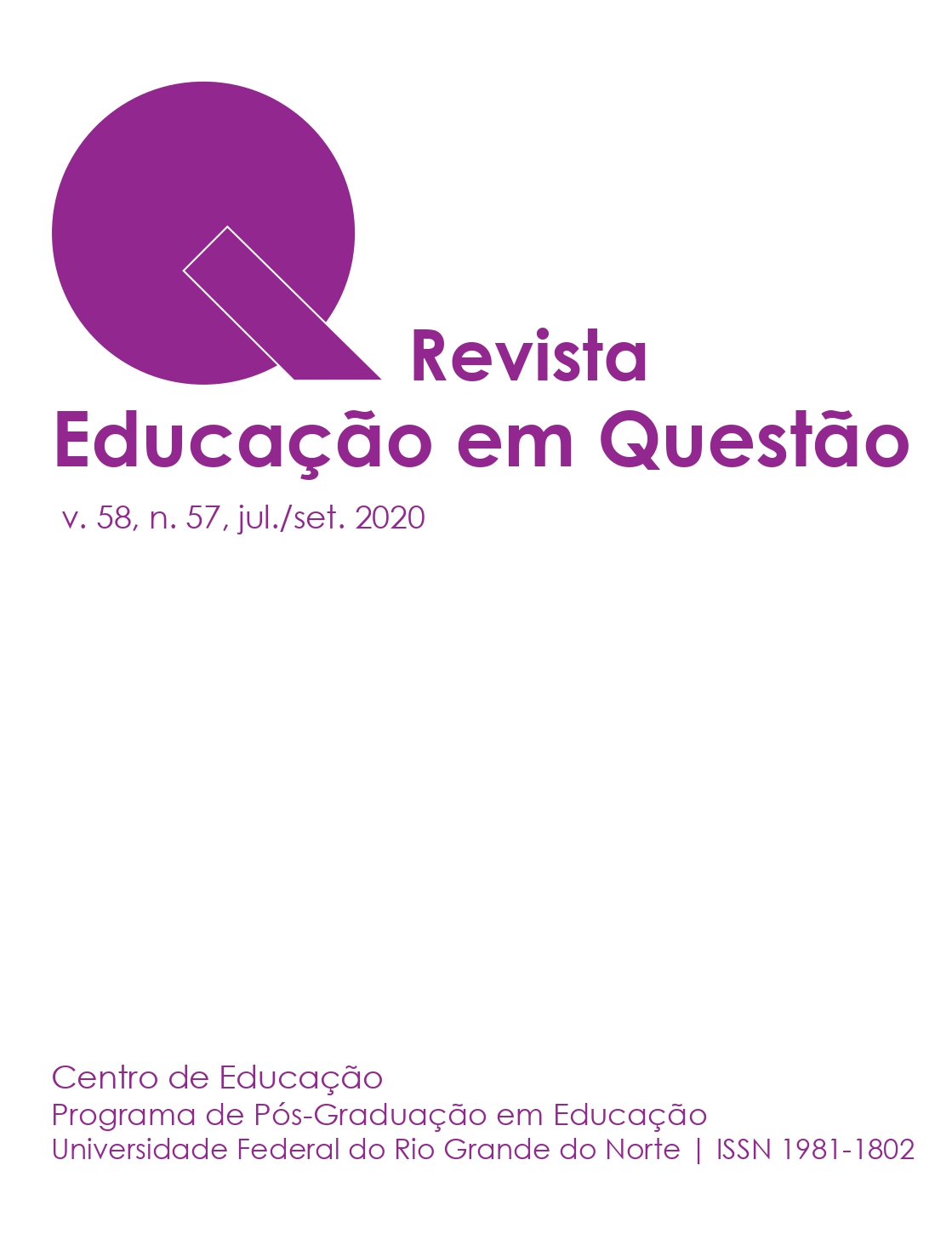Subjectivations of a teaching
Gender markings in school education (1970-1980)
DOI:
https://doi.org/10.21680/1981-1802.2020v58n57ID20985Keywords:
Education; Genre; Women, History of the Present Time.Abstract
This text is inserted in the studies of gender and the History of the Present Time. With the theoretical methodological contributions of these fields, we seek to reflect on the subjectivities constructed through the teaching process of the 1970s and 1980s. As a case study, interviews with Liza, a student of the period, who attended the Ana Vanda Bassara School, in Guarapuava-PR, were used as a source of analysis. This investigation made it possible to understand part of the student's school life, the construction of subjectivities, and to understand how gender markings were used to reaffirm an education that idealized women to be housewives according to the characteristics of the society of the time. Through this observation it was also possible to see how the teaching proposal and the existing social gender distinctions influenced the student's personal trajectory. Thus, this study contributes to other investigations that seek to establish comparisons of school education in different historical places and contexts.
Downloads
References
ALBERTI, Verena. Manual de História Oral. Rio de Janeiro: Editora FGV, 2005.
AREND, Silvia Maria Fávero. Convenção sobre os Direitos da Criança: em debate o labor infantojunvenil (1978 ? 1989). Revista Tempo e Argumento, Florianópolis, v. 7, n. 14, p. 29 ? 47. jan./abr. 2015. p. 29-47.
_________________ . Meninas. Trabalho, escola e lazer. In: PINSKY, Carla Bassanezi; PEDRO, Joana Maria. (Org.). Nova história das mulheres. São Paulo: Contexto, 2013, p.65-83.
ARTIÉRES, Philippe. Arquivar a própria vida. Estudos Históricos (Arquivos Pessoais). RJ: v. 11, n. 21, 1998. p. 09-32.
BRASIL. Decreto lei n.º 5.452, de 1º de maio de 1943. Consolidação das Leis do Trabalho.
________________ . Lei de Diretrizes e Bases da Educação nº. 4.024 de 20 de dezembro de 1961.
________________ . Lei de Diretrizes e Bases da Educação nº. 5.692, de 11 de agosto de 1971.
BRITES, Jurema. Afeto, Desigualdade e Rebeldia: bastidores do serviço doméstico. Tese de Doutorado, Programa de Pós-Graduação em Antropologia Social, UFRGS, Porto Alegre, 2001.
CASTANHO, Maria Eugênia. Sobre professores marcantes. In: CASTANHO, Sérgio e CASTANHO, M. E (orgs.). Temas e textos em metodologia do ensino superior. Campinas, Papirus, 2001. p. 153-163. p. 159.
LIZA, Entrevista. Guarapuava, (Paraná), 13 de mai. de 2015.
LIZA, Entrevista. Guarapuava, (Paraná), 30 de mar. de 2016.
GUATTARI, Félix; ROLNIK, Suely. Micropolíticas: cartografias do desejo. 7ºedição. Petrópolis, RJ: Vozes, 2005.
JELIN, Elizabeth. Los trabajos de la memoria. España: Siglo Veintiuno editores, 2001.
MEYER, Dagmar Estermann. Gênero e educação: teoria e política. In: LOURO, Guacira; FELIPE, Jane; GOELLNER, Silvana. Corpo, gênero e sexualidade: um debate contemporâneo na educação. Petrópolis: Vozes, 2013, p. 11-29.
OBERTI, Alejandra. Qué le hace el género a la memória? In: PEDRO, Joana Maria; WOLFF, Cristina Scheibe (Orgs). Gênero, feminismos e ditaduras no Cone Sul. Florianópolis: Mulheres, 2010, p. 13-30.
PERROT, Michelle. Praticas da Memória Feminina. Revista Brasileira de História. São Paulo: Anpuh, v. 9 nº.18, ago./ set. de 1989.
ROUSSO, Henry. A última catástrofe: a história, o presente, o contemporâneo. Rio de Janeiro: Ed. da FGV, 2016.
SCOTT, Joan. Gênero: uma categoria útil de análise histórica. Educação e Realidade, Porto Alegre, v. 20, n. 2, jul./dez., 1995.
SCOTT, Parry. Fluxos migratórios femininos, desigualdades, autonomização e violência. In: AREND, Silvia Maria Fávero; RIAL, Carmen Silvia de Moraes; PEDRO, Joana Maria. (org) Diásporas, mobilidades e migrações. Florianópolis: Ed. Mulheres, 2011. p. 47-66.
Published
How to Cite
Issue
Section
License
The Journal Education in Question shall retain the copyright in all articles that it publishes.
The authors and co-authors of articles and book reviews, published in the Journal Education in Question, shall wait for at least 1 (one) year before they are allowed to submit new works for publication.






